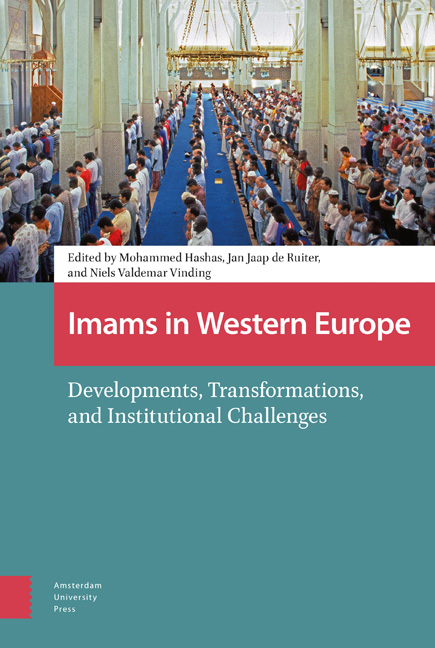9 - The Imam as an Organic Public Intellectual: The Case of Yassin Elforkani in the Netherlands
Published online by Cambridge University Press: 06 January 2021
Summary
Abstract
This chapter describes the case of a Dutch imam, Yassin Elforkani (b. 1982), who is struggling to negotiate his position as an authoritative mediating religious leader in Dutch civil society. It follows Elforkani’s steps of becoming an influential public figure and gaining a certain level of prestige as a religious authority in a secular context, while also meeting strong resistance from different audiences, both Islamic and non-Islamic. The chapter also discusses the broader question of the role and influence of imams as ‘public intellectuals’.
Keywords: Islam in the Netherlands, public intellectuals, populism, Salafism, institutionalization of Islam
Introduction
On 17 June 2015, the Dutch national newspaper Trouw reported the following: ‘Face of moderate Islam in the Netherlands quits.’ Due to serious security threats to him and his family, Yassin Elforkani, by then known by his chosen title of ‘imam of the young’, announced his resignation as the spokesman and board member of the largest national representative body of Muslims in the Netherlands, the Contactorgaan Moslims en Overheid (Contact Organ of Muslims and Government, CMO).
Since around 2004, Elforkani had been very active in the Dutch public sphere after making a name for himself as an imam in several mosques in Amsterdam and other Dutch cities. Highly accessible to the media, especially in his position as spokesman of the CMO, he has played a public role in the debate on Islam and Muslims in an increasingly tense national and international context.
Whereas most imams opt for an inward-oriented approach focused on leading the mosque community (Boender, 2007, 2014) with less exposure to the public, Elforkani is among the small group of imams that play an explicitly public role and actively contribute to the public debate. In this sense, Elforkani answers the call for a stronger civic engagement of imams in the public sphere not only in the Netherlands, but elsewhere in Western Europe as well. National authorities in Western-European societies often regard imams as communication channels between the governments and Muslim communities. Their role has recently been under close scrutiny for both integration and security concerns.
Since 2006, the Dutch state has provided a subsidy for imam-training and Islam programmes at two Dutch universities and one University of Applied Sciences (Boender, 2013; Ghaly, 2008).
- Type
- Chapter
- Information
- Imams in Western EuropeDevelopments, Transformations, and Institutional Challenges, pp. 165 - 184Publisher: Amsterdam University PressPrint publication year: 2018
- 1
- Cited by



